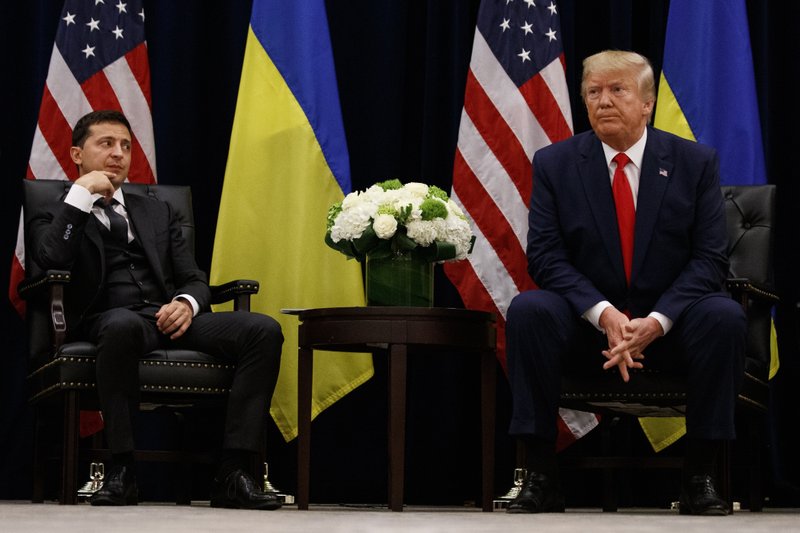President Donald Trump said Thursday that he might end the long-running practice of letting other administration officials listen in on presidential calls with foreign leaders. That’s after Trump’s impeachment was triggered by his July phone call with the president of Ukraine.
“I may end the practice entirely,” Trump told Geraldo Rivera in a radio interview that aired Thursday.
Trump also offered new insights into his feelings about being impeached, saying it made him think about the “dark” days when Richard Nixon resigned over the Watergate scandal before his own likely impeachment.
“Well, it’s a terrible thing and, you know, I think of Nixon more than anybody else and what that dark period was in our country and the whole thing with the tapes and the horror show,” Trump said. “It was dark and went on for a long time, and I watched it.”
He said he often passes portraits of past presidents that hang in the White House.
“The portrait of Richard Nixon — I don’t know. It’s a little bit of a different feeling than I get from looking at the other portraits of presidents,” he said. “I got impeached for no reason whatsoever — totally partisan.”
Trump was impeached over his decision to hold up military aid to Ukraine. House Democrats allege that Trump abused his power by asking Ukraine to announce investigations of political rival Joe Biden and other Democrats in exchange for releasing the aid. House Democrats also charged Trump with obstruction of Congress for refusing to turn over documents and provide witnesses.
The president’s impeachment stemmed from his July 25 call with Ukrainian President Volodymyr Zelenskiy. Secretary of State Mike Pompeo and White House staffers listened in the call.
As is standard practice in any administration, the staffers, working in the secure, soundproof Situation Room in the West Wing basement, chronicled the conversation. National Security Council personnel then prepared a memorandum about the call, which serves as an official record.
The White House clamped down on the distribution of those memos earlier in the Trump administration after information about the president’s calls with other heads of state, including Mexico’s, were leaked to the media, according to two people familiar with how the distribution became more limited.
Larry Pfeiffer, a 30-year U.S. intelligence veteran who managed the Situation Room during the Obama years, said his predecessor told him that the White House had stopped taping presidential calls in the 1970s after Nixon recorded 3,700 hours of conversations. Transcripts of those conversations were used by Watergate investigators and during the impeachment hearings that followed.
“The long-standing practice is something meant to help and protect the president. It allows the president and the national security adviser to track any agreements made on the call and to refute quickly and accurately any incorrect claims about the call made by the foreign side,” Pfeiffer said, adding that it allows White House staff members to follow up and implement the president’s policy.
Pfeiffer, who now directs the Michael V. Hayden Center for Intelligence, Policy, and International Security at George Mason University, said the memoranda of foreign leader calls also fulfill important historical record-keeping requirements.
“By stopping the practice, the president only shoots himself in the foot,” he said. “And one can only surmise that the president therefore has something to hide from his own staff and bureaucracy.”
(AP)











